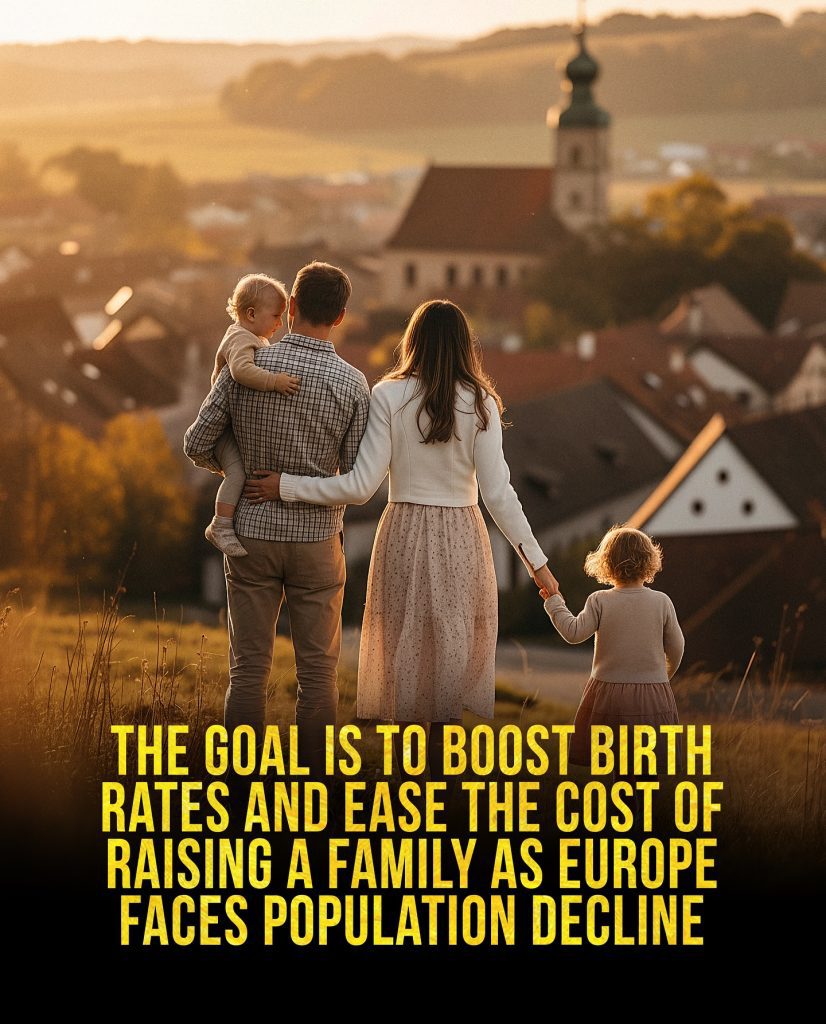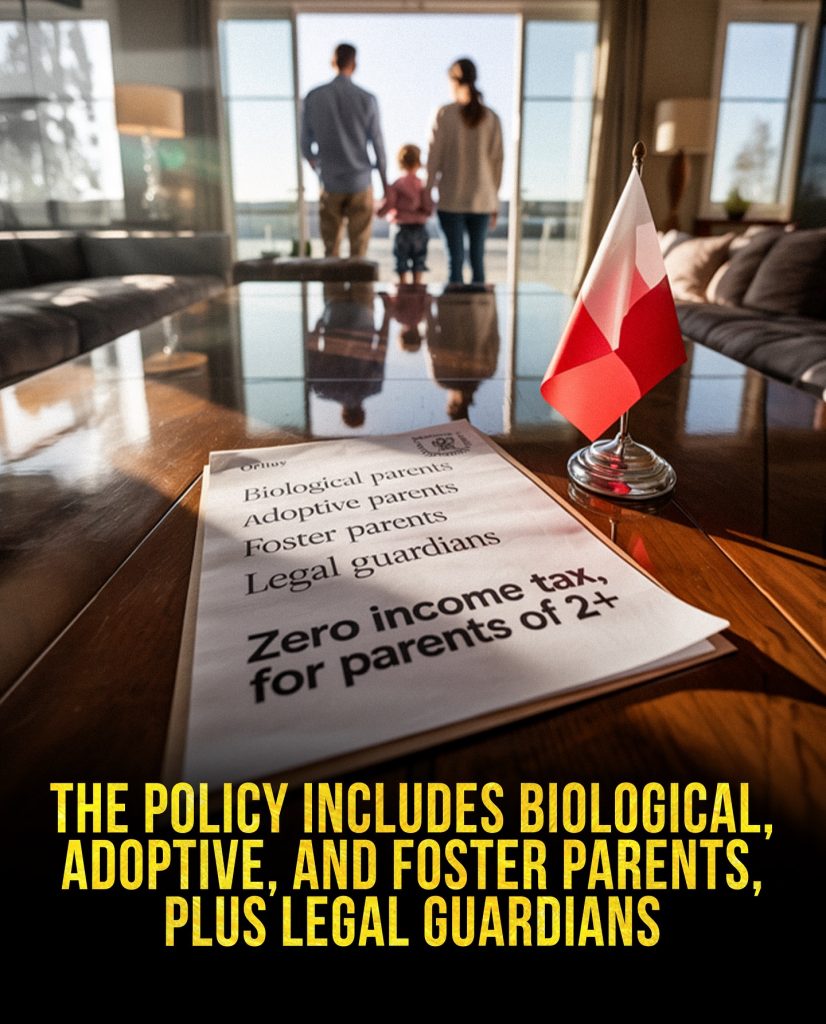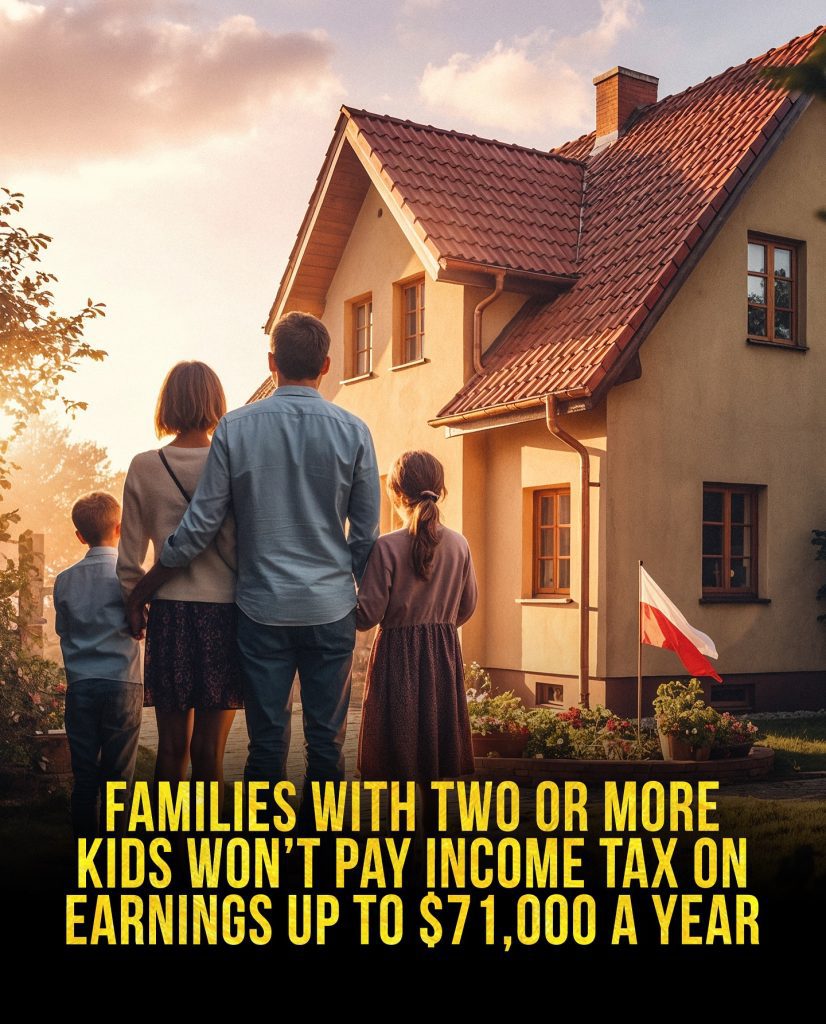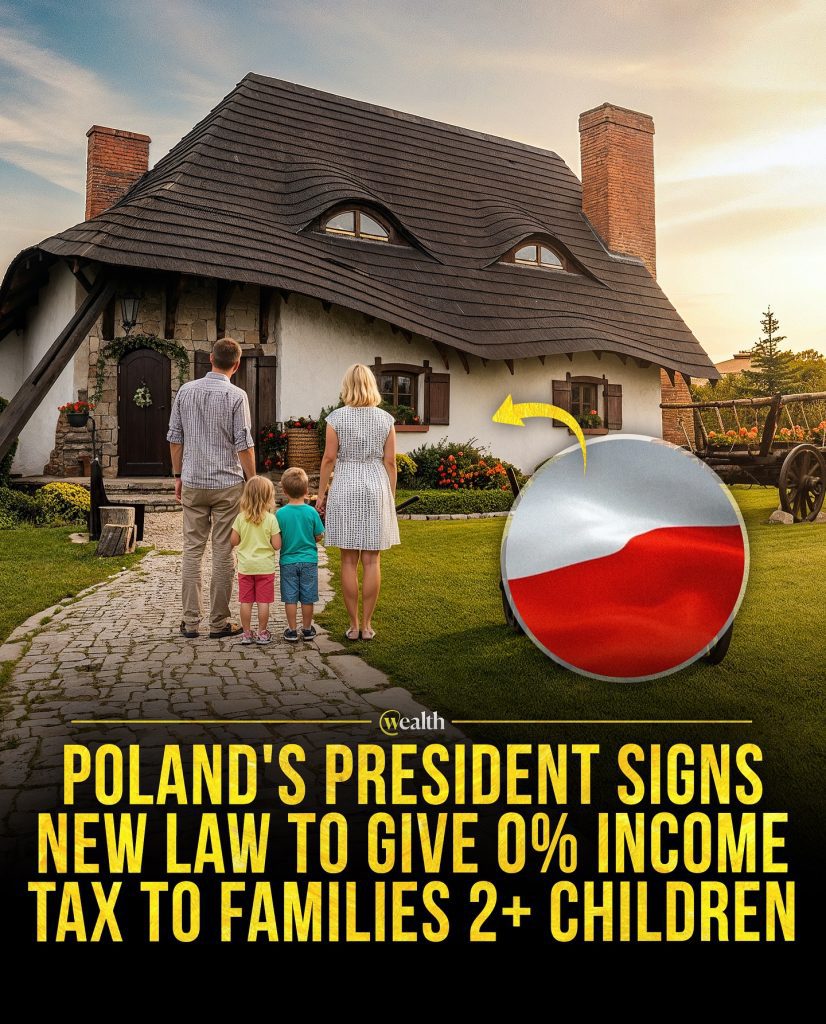Poland’s President Signs New Law Offering 0% Income Tax for Parents with Two or More Children — A Bold Move to Tackle Europe’s Population Decline
Poland just made one of the most family-focused policy moves in Europe, offering a major incentive to parents raising children. Under a new law signed by President Andrzej Duda, families with two or more kids will now pay 0% income tax on their earnings — a decision designed to both ease financial pressure on households and address one of Europe’s growing demographic challenges: declining birth rates

The plan applies to a broad range of caregivers, including biological, adoptive, and foster parents, as well as legal guardians. For a two-parent household, the tax exemption covers income up to roughly $71,000 per year (equivalent to 140,000 Polish zloty per parent). This means many Polish families will now be able to keep more of what they earn, allowing them to invest in their children’s education, housing, and everyday needs.

Government officials say the initiative has two main goals: to make it easier for parents to raise children and to encourage couples to have larger families. Like many European nations, Poland faces a worrying population trend. Birth rates have fallen sharply in recent years, leading to a shrinking workforce and growing concern about the country’s long-term economic stability. By cutting taxes for families, leaders hope to turn the tide — helping parents feel supported rather than financially burdened by the idea of expanding their households.
“This is about giving families a real sense of security,” President Duda said during the announcement. “We want to show that having children shouldn’t mean financial struggle. It should be something people feel confident and proud about.”

For many Polish families, the new policy comes as a welcome relief amid rising living costs. Inflation and housing expenses have made it increasingly difficult for young couples to consider having multiple children, especially in urban areas like Warsaw and Kraków. The 0% tax rate, officials say, is a practical way to put money directly back into parents’ pockets rather than relying solely on benefits or subsidies.
The move builds on earlier family-friendly measures introduced in Poland over the past decade, including the popular “Family 500+” program, which provides monthly child benefits. But this new tax reform represents a deeper structural shift — rewarding families through the tax system itself rather than temporary payments. It also marks Poland’s effort to stay competitive with other European countries experimenting with similar policies. For example, Hungary has introduced tax exemptions for mothers of four or more children, while France continues to use family-based tax credits to incentivize childbirth.

Economists have called the law ambitious, noting that its long-term success will depend on how effectively it eases financial stress for families. “It’s not just about encouraging people to have kids,” one Warsaw-based analyst said. “It’s about ensuring that raising them feels sustainable — that families don’t have to choose between economic survival and parenthood.”
Public reaction has been largely positive. Parents have shared stories online about how the policy could help them save for childcare or afford bigger homes. Some say it’s the first time they’ve felt their government truly understands the financial reality of raising children.
The bigger picture, however, extends beyond personal finances. Poland, like much of Europe, is grappling with a future where aging populations and lower birth rates could reshape its labor market, pensions, and social systems. This tax reform, while just one step, signals that the country is willing to take bold action to safeguard its future.
If the policy succeeds, it could become a model for other nations struggling with similar issues. For now, though, it’s a sign of hope for millions of Polish parents — a promise that the work of raising the next generation won’t go unnoticed or unrewarded.

